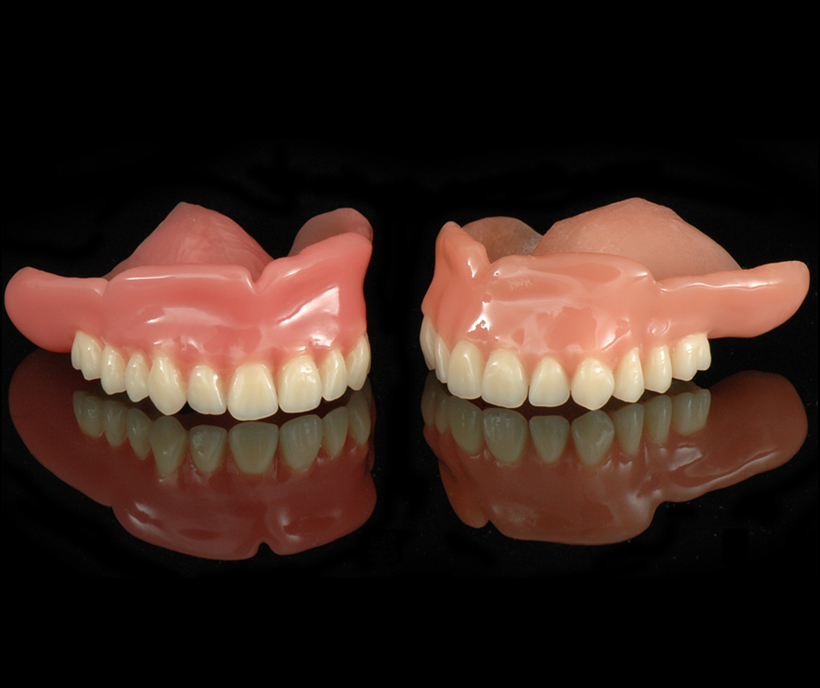
Adapting to New Dentures: Tips and Strategies
The adjustment period for new dentures brings the excitement of an enhanced smile, but it also requires patience and practice. Making the transition to wearing dentures full time is a significant change that involves developing new eating, speaking, and dental hygiene practices.
Dentures are available at Burtonsville Dental Suite in Burtonsville and the surrounding area. Our team can provide tips and support to help you adjust well to your new dentures. There are several different strategies to practice and try at home to make the change easier. Call us at (301) 421-1300 to learn more about our services or schedule an appointment.
Tips for Adjusting to New Dentures
While dentures improve the form and function of a person’s smile, they feel and act differently than natural teeth. These differences can entail a learning curve as people must learn how to care for their dentures and get used to smiling, eating, speaking, and drinking while wearing dentures. It is important for people to continue wearing their dentures to help their mouth adjust. It is common for people to feel that their dentures are too loose or big at first. However, the tongue and mouth muscles will soon adjust and help keep the dentures in place.
Speaking is one of the most noticeable adjustments patients must make when adjusting to dentures. Patients may experience some difficulty speaking with them because of the changes in the way the mouth muscles move. We recommend that people practice reading out loud in front of a mirror during those first few weeks. Patients should also make sure they have the right denture adhesive and start by speaking slowly to get used to conversing with dentures.
“While dentures improve the form and function of a person’s smile, they feel and act differently than natural teeth.”
Denture Hygiene Routine
Another crucial aspect of adjusting to new dentures is a consistent and effective dental hygiene routine. Proper denture care is essential to maintaining the health of the gums and mouth. Dentures should be brushed and rinsed every day to remove food and plaque. It is also vital to soak dentures overnight since dentures need to remain moist to maintain their shape.
People should avoid using abrasive cleaning materials such as harsh or whitening toothpaste, hot water, and products that contain bleach. It is also essential to schedule regular dental check-ups. These appointments allow us to ensure that the dentures fit properly and prevent slippage and discomfort.
“Another crucial aspect of adjusting to new dentures is a consistent and effective dental hygiene routine.”
Expectations for the First 30 Days
During the 30-day adjustment period, patients should be gentle on their mouths and take their time adjusting to a new routine. New denture wearers should develop realistic expectations. While oral discomfort is normal and expected, dentures will start to feel more natural and comfortable over time. Increased salivation and sore spots on the mouth are also normal to experience during the first month of wearing new dentures.
While eating and speaking may feel foreign at first, practicing and having patience are key to the adjustment process. If there are still fit and comfort issues after a month, people should contact us for an adjustment appointment. After the first 30 days, people should be able to enjoy their everyday activities comfortably and confidently.
“During the 30-day adjustment period, patients should be gentle on their mouths and take their time with the new routine.”
Adjusting Eating Practices
People with new dentures may also need to adjust their eating practices. We recommend starting with soft foods since chewing becomes more challenging when wearing dentures for the first time. People will have to learn how to chew without popping their dentures out of place, biting their tongues, or scraping their gums.
Once people are ready to move on to tougher foods, it is best to cut the food into small, bite-sized pieces that the back teeth can chew easily. Even once people get used to chewing, they should not chew with the front teeth since it can cause dentures to become unstuck in the back. It is also best to avoid sticky foods, hard items, or tough cuts of meat that may cause dentures to come loose or even damage them.

